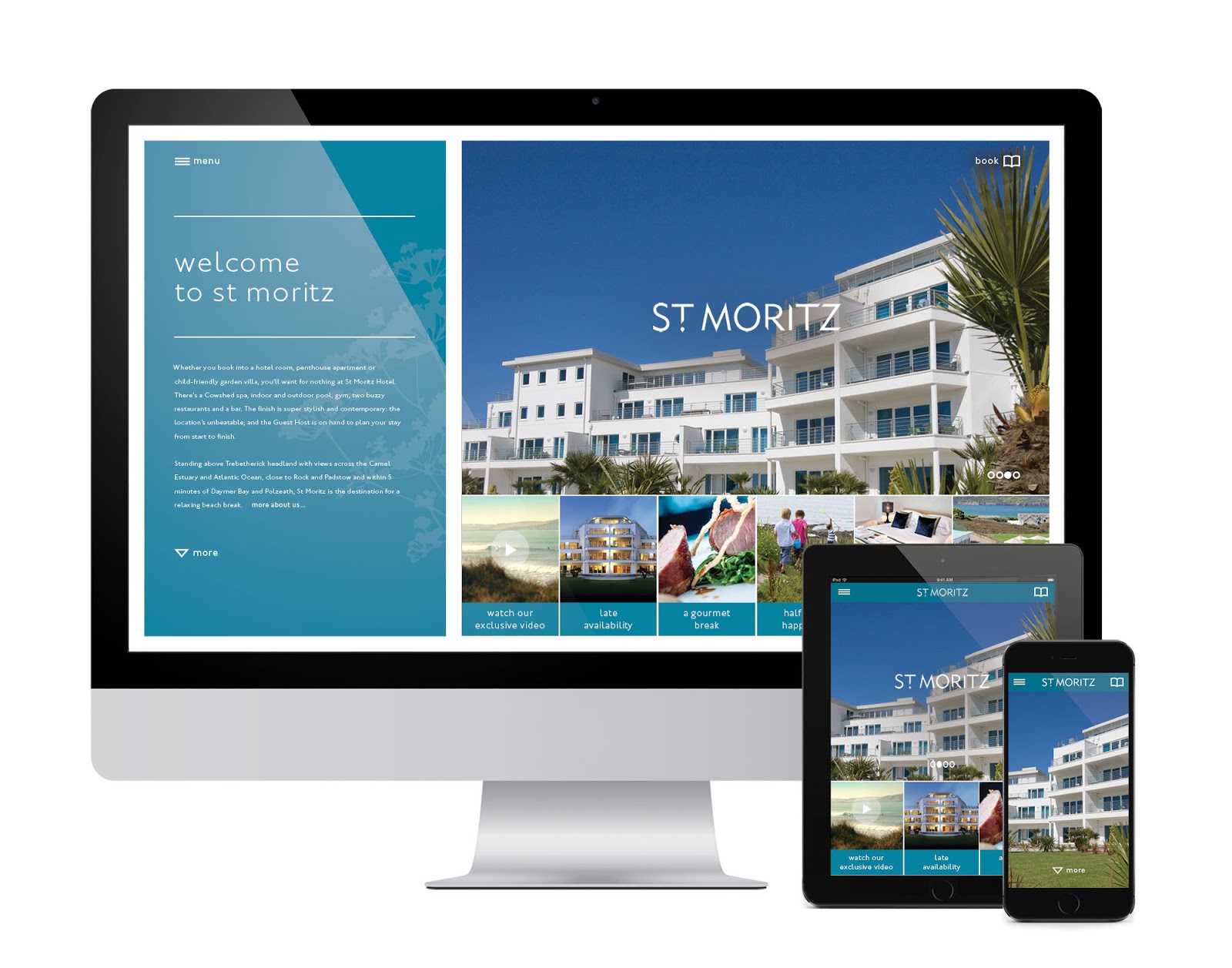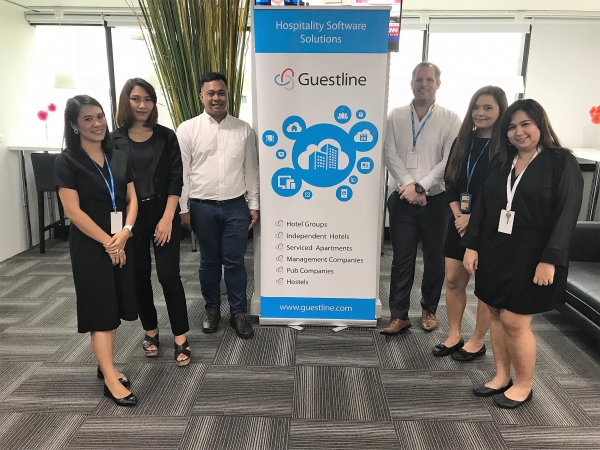Using the cloud before it was even called ‘the cloud’
We speak to Guestline's CEO, Andrew McGregor
Contributors are not employed, compensated or governed by TDM, opinions and statements are from the contributor directly

I spoke to Andrew McGregor, CEO of Guestline, about life in Asia, the early days of e-commerce, and how to expand into new markets, for the latest TD podcast.
This is an abridged version of that conversation. McGregor speaks:
Background
 I’m originally from Scotland, but I moved to Asia in 1988 and spent five happy years there. I got a job with The Economist group in Hong Kong: we had reporters and analysts based there and in China, which was opening up at the time.
I’m originally from Scotland, but I moved to Asia in 1988 and spent five happy years there. I got a job with The Economist group in Hong Kong: we had reporters and analysts based there and in China, which was opening up at the time.
I remember being in Shanghai and looking across to Pudong – it was completely dark, not like today with all the buildings. That helps to illustrate the pace of change in the country.
Later, as marketing director for Europe, Middle East and Africa at The Economist, I helped to launch The Economist online, as one of the early trailblazers in terms of the new world of the internet.
Then I moved into telecoms, latterly as marketing strategy director for British Telecom. I was there until 2007 before I set up my own business called Ecommera. This actually has a lot of parallels with Guestline in that it is in the retail sector.
We sold Ecommera in 2015 to a Japanese group. We had a product that was, in essence, a cloud-based suite of applications – it wasn’t called ‘the cloud’ at the time! – to manage inventory across online channels and in store – ‘omni-channel’ retail. Before we sold the business we had about 400 staff spread from India to San Francisco and we were working with retailers from the likes of Victoria’s Secret to Asda, and we took Clarins online into China.
“I saw a lot of parallels between the retail sector and the hospitality sector”
In 2016, I was speaking to the team at Guestline. I saw a lot of parallels between the retail sector and the hospitality sector – effectively the challenges hoteliers were facing with the growth of online, and the changing expectations around the guest experience. I liked the idea that the company had a very strong focus on service particularly on helping customers through the journey, so I invested in the business and joined as CEO in 2017.
Guestline – the product
 Guestline is a cloud-based hospitality software business that helps hoteliers and people with serviced apartments to find more clients through our distribution platform and to manage the guest experience. We manage all of the necessary integrations and provide the service wraparound – I would describe us as software and a service rather than software as a service.
Guestline is a cloud-based hospitality software business that helps hoteliers and people with serviced apartments to find more clients through our distribution platform and to manage the guest experience. We manage all of the necessary integrations and provide the service wraparound – I would describe us as software and a service rather than software as a service.
Until 2018, the world of hospitality software has been split in two, with focus on operational software and property management, and then, separately, distribution software. Those two worlds are coming together with the emergence of cloud-based technologies. Until recently, the technology was sited on the actual hotel premises and there was a struggle to scale and push inventory out across multiple online agencies.
Now there is no need for these two things to be separate. The combined operational and distribution platform – that holistic offer – is solving a key headache for hoteliers. Oftentimes, the two platforms were not compatible so users would have to key in the same information twice. Our focus is how to smooth those processes for independent, national hotels. We need to make life as simple as possible for hoteliers so that they can spend more time servicing their guests instead of using technology.
Guestline’s key markets
Obviously our main market is the UK where the company was founded. In the past 18 months we have moved into Ireland, Belgium, Holland and Germany. Every new market has its challenges but we see a very significant opportunity, particularly in Germany, as they are slightly earlier in their development of a cloud offering.
We need to not only localise the product but the service; we need to become effectively a German start-up to ensure we are delivering in the local market.

We have had a operation in Thailand for a few years and we’ve been investing in our sales capability in Thailand to serve our guests in Southeast Asia, including in Indonesia and in the Philippines.
It definitely helps to have seen the dynamism in the Asia market. I remember travelling to Koh Samui in 1988 when there was no electricity, no hotels and just empty beaches. Five years later I returned, to an airport and a full bank of hotels right across the beach! There is still a huge amount of dynamism in the Asian markets a lot of new builds and that creates a lot of opportunities for a business like ours.
Cultural differences and advice to others
I have seen a common set of challenges that hoteliers are facing but there are of course some nuances depending on the regional market.
“The core challenge of how do I improve my margins, how do I optimise my yield… remains fairly consistent”
It may be a different set of suppliers or payment systems, aside from some of the obvious fiscal requirements, but the core challenge of how do I improve my margins, how do I optimise my yield and distribution, how do I deliver the guest experience that modern consumers are experiencing in other sectors, remain fairly consistent.
For anyone looking to expand into a new market, the first piece of advice I would give is to go and talk to as many people as you can to get a real understanding of the opportunities and the challenges. I found in my career that people are very willing to share information, particularly in Asia.
The second thing is to focus. There are opportunities in different sectors and different markets and with different products so the challenge is to stay focused on the ones that make the difference for your customers and obviously benefit your business. The third thing is people. At the end of the day, even if you are a software business, you’re a people business. Finding and keeping the best people, particular when you are moving into a new market, is very important.
Future plans
We are focusing on a few things at the moment: one is to continue the development our omni-channel distribution platform, so that hoteliers can seamlessly manage their inventory and sell dynamically for example in the direct channel. We have a number of product launches coming in the summer connected to that.
We straddle the traditional world of the operations of hotels and the distribution. By bridging the two with our seamless guest experience that’s where we see an opportunity to help solve some of the challenges for our customers.
The final area is data. Later this year will we be launching a business intelligence platform which will provide a lot of the underpinning to help how customers make faster and better decisions.


Comments are closed.